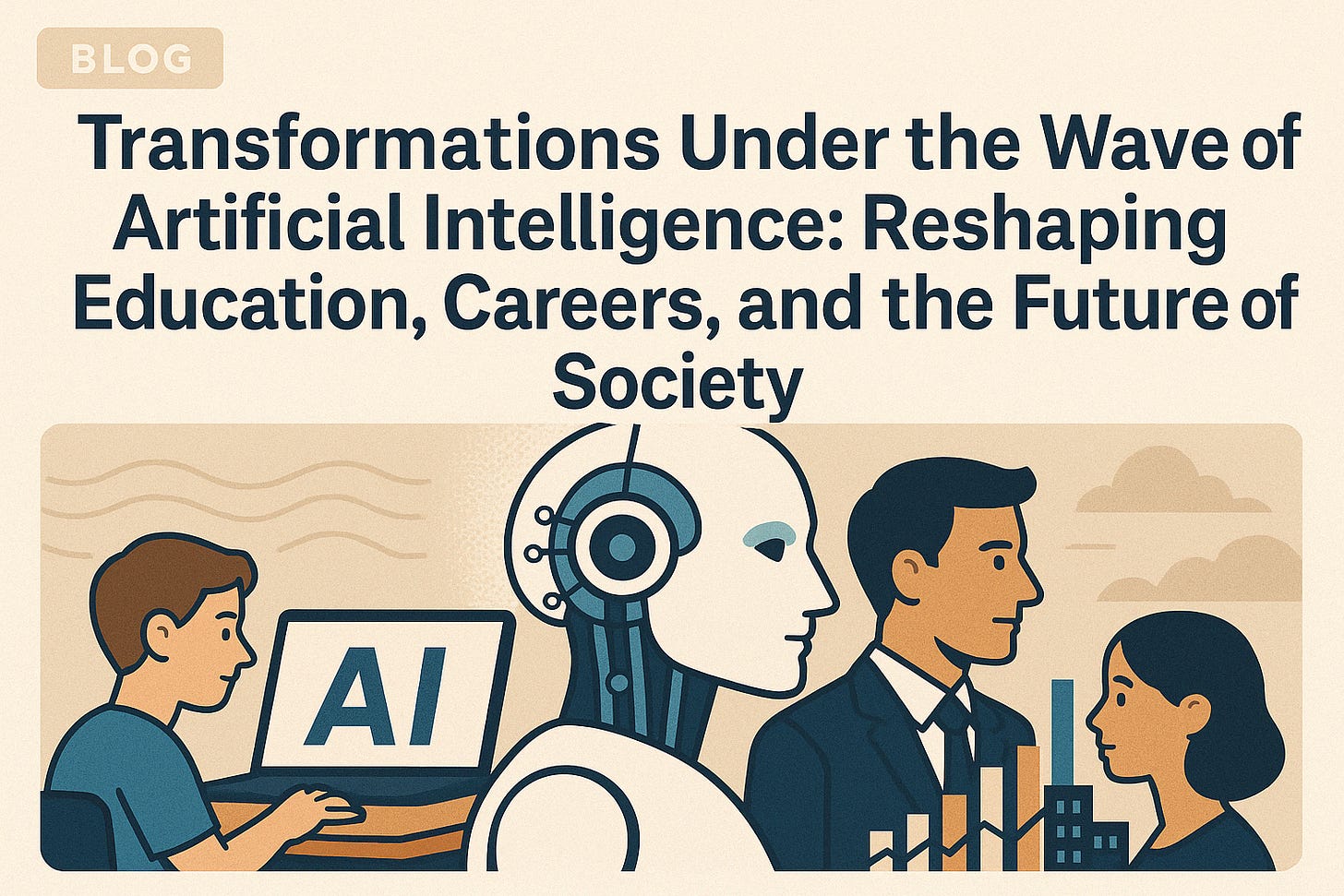The Wave of Artificial Intelligence: Reshaping the Future of Education, Careers, and Society
The rise of Artificial Intelligence (AI) is sweeping the globe with unprecedented speed and breadth, its impact far exceeding that of previous industrial revolutions. This is not merely a technological iteration but a profound transformation touching the core structures of society. From the fundamental goals of education to the very nature of careers, and from the pace of innovation to social safety nets, AI is forcing us to rethink and proactively respond to a new era.
Firstly, the education system faces pressure for fundamental transformation. The old model, designed for the industrial era with its emphasis on standardization and knowledge memorization, appears inadequate today when AI can easily handle repetitive information and tasks. The core of future education will no longer be about instilling established knowledge, but about cultivating unique human abilities that AI struggles to replicate. Among these, critical thinking and innovation thinking will ascend to become the most crucial learning objective. Students need to learn how to analyze information, discern truth from falsehood, think independently, ask valuable questions, and make wise judgments in complex situations. Simultaneously, creativity, collaboration, communication, emotional intelligence, adaptability, and the digital literacy to interact effectively with AI will become new focal points of education. Teaching methods will evolve accordingly, moving towards more personalized, project-based, and interdisciplinary learning models, with a greater emphasis on ethical considerations and the capacity for lifelong learning.
Closely linked to educational reform is the dramatic reshaping of the occupational structure. The wave of AI automation will initially impact numerous basic, repetitive jobs, whether in document processing, data entry, or rule-based low-level decision-making (such as some responsibilities of traditional junior managers). This will likely lead to a significant shift of human resources in two directions: one part will move towards jobs requiring higher cognitive abilities, such as complex problem-solving, strategic planning, innovative research and development, interpersonal interaction, and management; another part may enter task-based work directed by algorithms, characterized by high flexibility but potentially greater instability (the gig economy). However, perhaps the more common scenario will be human-AI collaboration becoming the norm in the workplace. Professionals will leverage AI as a powerful tool to enhance work efficiency and quality, such as doctors using AI for diagnostic assistance or designers employing AI to spark creativity.
Furthermore, AI is injecting powerful momentum into innovation across various fields, bringing about exponential acceleration. In medicine, drug discovery cycles are shortened, and personalized precision medicine becomes feasible. In agriculture, smart monitoring and precision operations significantly boost yields and efficiency. In transportation, autonomous driving and intelligent logistics systems promise to revolutionize our travel and freight methods. AI's formidable capabilities in data processing, pattern recognition, and prediction are driving breakthroughs in scientific research, materials development, energy management, and numerous other areas in unprecedented ways, with outcomes that will profoundly affect all aspects of human life.
However, alongside immense opportunities come severe societal challenges. While the productivity gains brought by AI paint a promising picture of a potential three-day weekend, they may also exacerbate unemployment and wealth inequality. As some jobs are automated away, ensuring a basic standard of living for all members of society becomes a pressing issue. Consequently, discussions around Universal Basic Income (UBI) or the establishment of more comprehensive basic living expenses rights protection regulations will become increasingly important, aiming to build a more resilient social safety net. At the same time, we must establish new legal frameworks and ethical norms to address emerging issues like data privacy, algorithmic bias, and the accountability of AI decisions.
In conclusion, Artificial Intelligence is a double-edged sword, presenting both unprecedented development opportunities and stern tests of society's adaptability. From educational innovation to career transformation, from accelerated innovation to adjustments in social structures, we stand at a historical crossroads. Only with foresight, careful planning, and an unwavering commitment to a human-centric approach – actively embracing change, guiding technological development, and improving social support systems – can we ensure that the benefits of AI are shared by all, collectively advancing towards a smarter, fairer, and more prosperous future.


